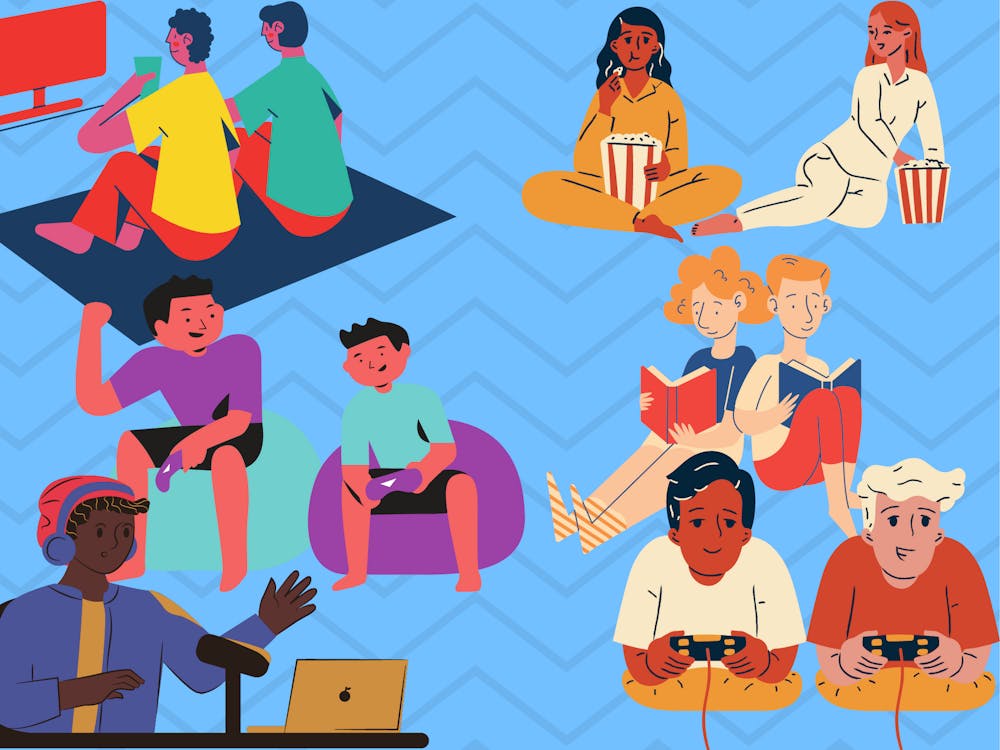I wished it was a movie.
We all have done it — you fast forward through that one part that’s just too hard to watch until you get back to the stuff that’s easier to grapple with ((cough) the first 20 minutes of Finding Nemo). But of course, it wasn’t a movie, there was no fast forward, and I certainly am no actress.
I’m a Certified Nursing Assistant, and at this moment I was watching a 34-year-old patient suffering from tremors, tachycardia and hypertensive heart disease. Ask your nursing friends what that list of symptoms means if I’ve already lost you. I’ve seen people crawl into the Emergency Room covered in blood after a near-fatal shooting, I’ve cleaned up patients who haven’t had a real shower in 3 years, and I’ve even had to help perform CPR on a patient after aspirating on pudding (yes, you can choke on chocolate pudding, be careful out there).
But this was different. This patient wasn’t like the rest of my patients—if you work in healthcare, you know the feeling. We have a way of distancing ourselves from the sad realities that stare us in the face. But this patient’s symptoms hit too close to home. This patient was presenting with physical manifestations of chronic stress.
I’ve always marked up stress as a way to meet goals. Healthy? Of course not. But I always meet my goals… or do I? Let me explain. As a first-generation college student and as a pre-med I’ve had lots of goals and plans for my life. I’m no stranger to stress, all self-induced sure, but stress is stress.
I spent my time at UP taking between 20-26 credits per semester before graduating in May after just four semesters. I have three jobs, two volunteer positions, I’m working on research, taking post bacc classes to finish up my pre-med requirements, and preparing for the MCAT. But for what?
Sure, maybe I’ve earned myself an earlier medical school application cycle. I’ve certainly earned my parents some bragging rights and some stiff competition for the cousins.
But what I have lost in this competition with myself?
I’ve missed family gatherings. I’ve studied on lunch breaks. I’ve finished a 12-hour shift at one job and rolled right into an 8-hour shift at another. I didn’t get to watch the last two Super Bowls. Okay, so maybe that last one isn’t too important. Regardless, I may have lost more in the last few years than I have gained.
Now if you’re anything like me or my parents, at about this point you're thinking, “Well, of course, you have to sacrifice some to get to where you want to go. It will be worth it when you get there.” And yes, I don’t debate that, what I do debate is how long it should or shouldn’t take to get where you are going.
I like to think about it this way: all tests have some level of time limit, but you aren’t graded on how quickly you complete it. You aren’t awarded bonus points for being the first person to hand the test in nor are you penalized if you take longer than the guy sitting next to you.
If I’ve learned anything over the last 18 months, it’s that plans are exactly what they sound like. Plans. They aren’t set in stone. None of us were born with an integral dated life map from birth to death that if not followed to the letter will result in an automatic error message over our life. And if you were, please message me. I need to meet you.
So why are we always rushing to get through life? I bring you back to what brought me to this stage of questioning — my chronic stress patient. They were in pretty bad shape. Stress can do a whirlwind of damage.
I’m sure the stress of being admitted to a neurology unit that’s half-psych half-stroke probably hadn’t eased their worries either. Caring for this patient was nothing short of challenging.
All the things we knew to do weren’t working and we simply couldn’t take their stress away. It just doesn’t work like that. When running through the last group of options for treatment with this patient’s nurse, he said something so simple it was profound.
“Why didn’t they just slow down?”
It was a great question that we didn’t have the answer to. Or maybe we did. This patient was rushing through life, as most of us do.
They were taking kids to school while running an online business during lunch breaks at their regular 9-5. They kept their Instagram stories fun and tidy, only showing the highlight reel of their life. They trained for a marathon in the early morning hours, volunteered at the local food pantry, and served as a mentor for at-risk youth. The list went on and on.
None of these activities are bad, in fact, many are admirable, but maybe slowing down could have been beneficial. Maybe volunteering at the food pantry once a month while the kids are still young. Maybe putting off the marathon until the online business is up and running. Maybe even waiting to start the online business.
But we don’t know how to do this. As a society, we run through life almost as if we are racing to meet death. Why are we so against slowing down?
This scenario got me thinking. What would happen if I slowed down? Even just a tad. Maybe I don’t need all three jobs at this point in my life. Maybe I could put off applying to medical school for one more year. Maybe I could even halt one of my research positions.
How would my life change if some of these activities weren’t in it? So, I implore you to ask yourself the same questions. What are you racing through life for? Why are you doing everything to cheat time? Can you still meet your goals at a slower pace? What would happen if you slowed down? Because the truth is, we aren’t short on time.
We are given all the time we need; we’re just going too fast to use it.
Jordan Hammock is a UP alumni. She can be reached at hammock23@up.edu.
Have something to say about this? We’re dedicated to publishing a wide variety of viewpoints, and we’d like to hear from you. Voice your opinion in The Beacon.








